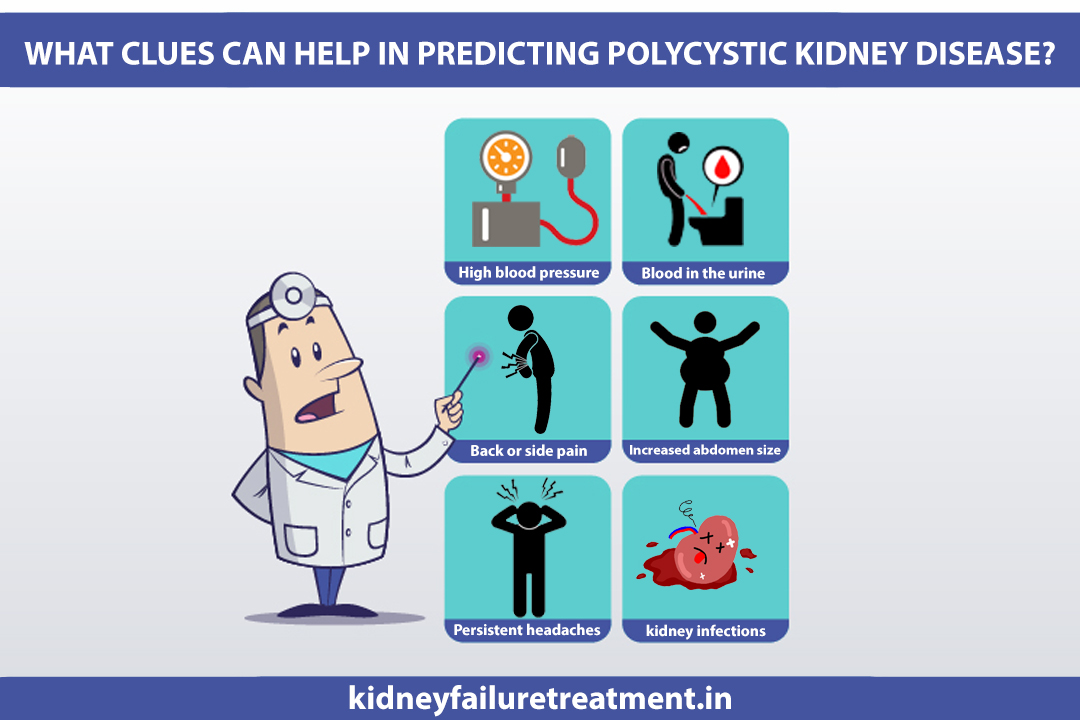Polycystic Kidney Disease Treatment in Ayurveda, Karma Ayurveda – Dr. Puneet Dhawan

Polycystic kidney disease or PKD is hereditary kidney impairment. It is a progressive disease that is caused due to a genetic mutation in DNA. Polycystic kidney disease is characterized by the formation of numerous cysts in the lining of the kidneys. These cysts could be thousand in number and may vary in sizes. Cysts in polycystic kidney disease are non-cancerous in nature and enlarge the size of the kidneys. “Polycystic Kidney Disease Treatment in Ayurveda”
The normal size of kidneys grows like a large football in polycystic kidney disease and weighs about 38 pounds each. These cysts disrupt the normal renal functioning and increasingly decline it. The flared up condition of polycystic kidney disease leads to kidney failure that is recommended to be treated by dialysis and kidney transplant.
Classification of Polycystic Kidney Disease
PKD also called Polycystic kidney disease is known to be of two types: (ADPKD) autosomal dominant polycystic kidney disease and (ARPKD) autosomal recessive polycystic kidney disease. ADPKD / Autosomal Dominant Polycystic Kidney Disease is the common type of PKD seen that develops its signs and symptoms between the ages of 30-40 years.
Earlier it was known as adult polycystic kidney disease because of its advent in the later stages of life. This is not the similar case today. Children may also develop this disorder nowadays. The transmission of ADPKD is possible only when one parent out of two spouses has it, in such a case the child develops a 50% chance of getting the disease. “Polycystic Kidney Disease Treatment in Ayurveda”
ARPKD / Autosomal Recessive Polycystic Kidney Disease is the less common form of PKD witnessed among kidney patients. Its signs and symptoms develop immediately after the birth of a child. In a few cases of ARPKD, the symptoms do not appear until later childhood or during adolescence. Also, the possibility of developing ARPKD is 25% as both spouses need to have the faulty gene to transmit it to their offspring.
What Clues Can Help In Predicting Polycystic Kidney Disease?
There are some commonly occurring signs and symptoms of polycystic kidney disease. These involve:
- High blood pressure
- Blood in the urine
- Increased abdomen size “Polycystic Kidney Disease Treatment in Ayurveda”
- Back or side pain
- Persistent headaches
- Frequent bladder or kidney infections
- Fluttering or pounding in the chest
A technical form of treatment Allopathy believes that polycystic kidney disease has no cure. It can only be managed by reliving the symptoms. The inherited nature of the disease makes it a lifelong suffering. “Polycystic Kidney Disease Treatment in Ayurveda”
Ayurvedic Treatment for Polycystic Kidney Disease:
Ayurveda, an age-old treatment procedure, uses natural ingredients to recover the body ailments. It believes that nature is a powerful medical ingredient that has a solution for all body ailments. PKD, according to Ayurveda, can be cured through medicated herbs like rakt chandan, milk thistle, shirish, gokshur etc. Also, diet holds an important position in reversing the damage caused to the kidneys in PKD. Below are certain natural remedies that can accelerate the recovery of polycystic kidney disease. “Polycystic Kidney Disease Treatment in Ayurveda”
- Addition of garlic in regular cooking
- Increasing dietary fiber to subside the formation of cysts
- Consumption of herbal tea
- Moderate fat consumption
- Avoiding foods like eggplant, beet, and spinach
- Including ample fruits and vegetables to fight free radical damage
- Replacing other protein sources with soy protein
Karma Ayurveda, an India based kidney hospital, runs under the supervision of a proficient kidney expert Dr. Puneet Dhawan. The centre renders the topmost ayurvedic treatment for all kinds of kidney ailments. Their Ayurvedic medicines are safe and side effects free and provide permanent cure to polycystic kidney disease. “Polycystic Kidney Disease Treatment in Ayurveda”
